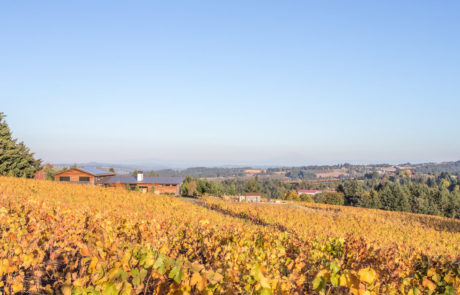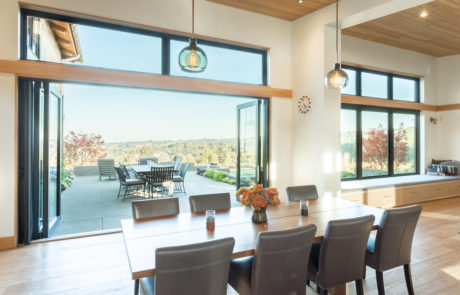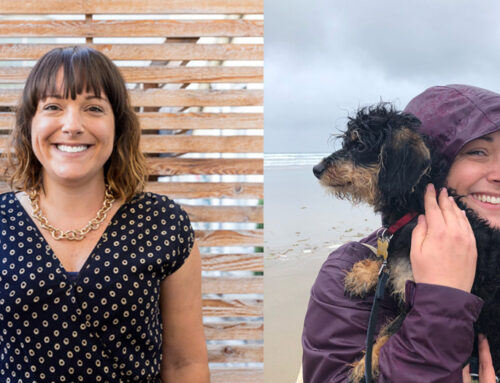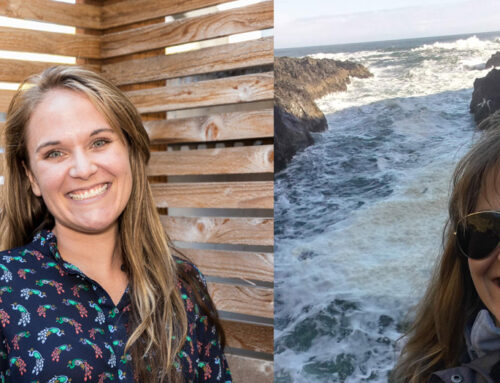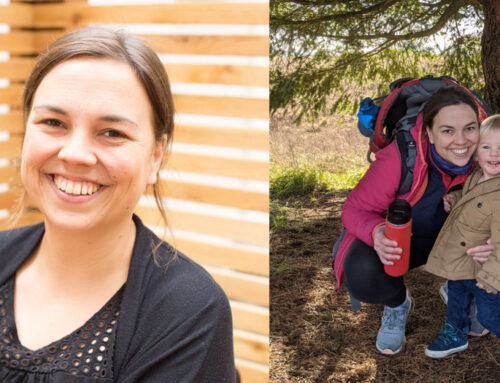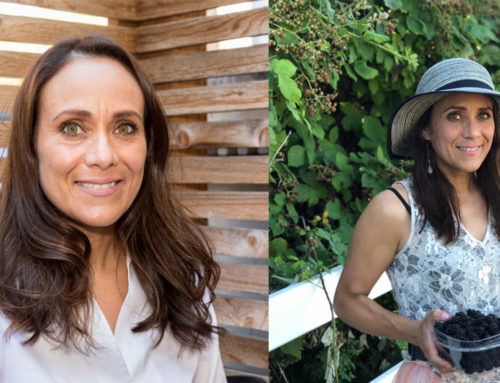A swirl of the glass and a sniff of the nose. A small and savored sip. There’s a science to wine tasting, but you don’t have to be an expert to enjoy it. Melody and Brian Emerick have noticed that there’s a younger, less experienced wine tasting generation seeking out tasting rooms for this very experience, and “experience” is the key word. There’s something truly authentic about the wine that comes from Oregon and the people who produce it. That Pacific Northwest authenticity is not only critical to the taste of the wine, but to the tasting room and experience of those enjoying it.
Recently, Brian and Melody attended the 2019 Oregon Wine Symposium in Portland. One of their key takeaways was that the Oregon wine industry is booming–so much so that people are recognizing its prestige internationally. “People love coming to Oregon and all the bounty that’s here, and if there’s a winery in the neighborhood they’re going to, that just makes it even better,” said Melody. “If it feels like it’s something authentically Oregon, that resonates even more.”
Authentic Oregon is a concept that’s not foreign to Emerick Architects. As an Oregon native, Brian’s roots are firmly planted in the Pacific Northwest. That Oregon aesthetic is evident in all of Emerick’s work, and is crucial for creating an authentic experience to Oregon tasting rooms. “We have a lens that is rooted in the Northwest,” said Melody. “To us, we call it humble elegance….It’s not fancy. It’s not showy, per se, but it just says, ‘Hey. This is a great experience and I want to spend time here.’” The naturally beautiful backdrops of Oregon wine country not only make the tasting rooms authentic, but bring natural elegance that eliminates the need for flashy design.
“To me a great tasting room would be one that gets you out in the landscape so you can experience the place where the wine is coming from,” said Brian. “It’s kind of rooted in the agriculture and the outdoors. But it’s also a place where you have this expansive landscape experience, then you also have a great intimate hospitality experience.” There is a unique convergence of commercial and residential design when it comes to creating the perfect tasting room. It has to be a functioning and efficient space for a business, but at the same time must be warm and welcoming–a place where patrons feel at home. This is where Brian and Melody’s combined expertise really comes into play.
“We’re really working closely with the skill set we have from the residential side, which is very detail-oriented and starts from the interior,” said Melody. “To the more complex systems and the production process and all of the entitlements that are more complex in a commercial project.”
As former Chair of the Portland Historic Landmark’s Commission and a member of the policy committee for unreinforced seismic retrofitting, Brian is adept at historic preservation and adaptive reuse. His commercial experience makes him an authority on zoning codes, including in an agriculture context where things can get complex. Melody has won numerous awards for her residential design and her creativity and heart are what makes a space feel like home, even in a public tasting room. Ultimately, people come to Oregon for what they feel is an authentic wine tasting experience.
While the Oregon aesthetic and the experience is important, an inclusive experience is also crucial. “When people see wine or architecture as an elitist thing, that goes against the grain of everything we believe in,” said Melody. “Most people don’t hire architects on a regular basis if at all. And so we recognize that there’s a huge level of trust they’re putting in us to say, ‘This is my dream.’ Whether it’s a winery or a home or something more simple.” Brian and Melody don’t take their work lightly. No matter the job, hiring an architect is a huge commitment.
“We want to be responsible stewards and create something that’s going to be long-lasting and inspiring for future generations,” said Brian. “That’s one of the great things we get to do is help people bring their dreams into something that’s a real manifestation–it actually transcends into the future generations.”


